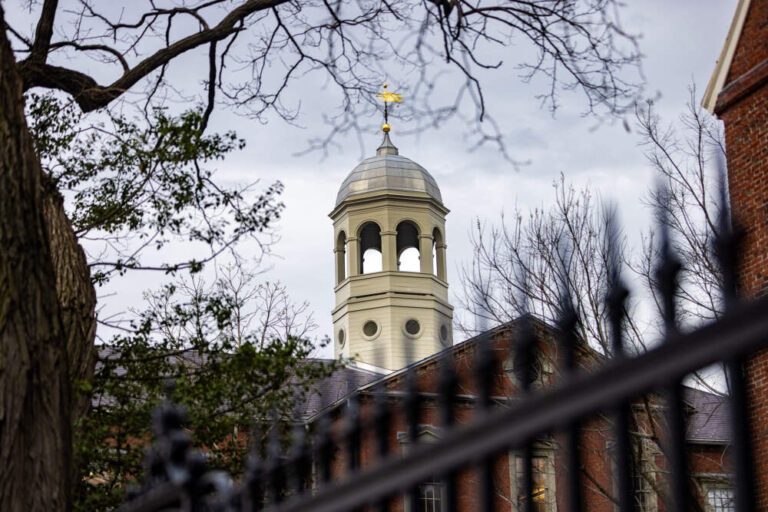Harvard University announced on Tuesday that university leadership will no longer issue public statements about social or political issues unless they directly affect the university’s “core functions.”
Going forward, university officials said they would only issue statements on behalf of the university on issues related to its core values, such as academic freedom and an open environment for research.
“University leaders are hired for their ability to lead higher education institutions, not for their public policy expertise,” the report released by the eight-member task force said. “Accordingly, they should limit their public comments to matters that are within their institution’s expertise and responsibilities: running the university.”
Harvard’s new stance comes amid a year of turmoil on campus since the start of the war in Gaza last October, sparking campus protests and dividing students, faculty, staff and alumni.
The report was released by a faculty-led group that formed in April and calls itself the Institutional Voice Working Group, as part of Harvard’s initiative to foster constructive dialogue, academic freedom and open inquiry on campus.
“We have accepted the Faculty Working Group’s report and recommendations, which have also been endorsed by the Harvard Board of Trustees,” Interim President Alan Garber said in an email to campus officials on Tuesday.
The directive applies to any individual who can speak on behalf of the university, including presidents, deans, department chairs and other administrative leaders, according to the report.
Working group members said their recommendations and the new policy do not require absolute institutional neutrality.
Noah Feldman, a professor at Harvard Law School and co-chair of the working group, said leaders will still be able to speak publicly about the university’s mission and all matters relating to its governance.
“That’s their area of expertise, and they shouldn’t be neutral about it,” he said in an interview. “The university as a whole is not an expert on foreign policy, and the university as a whole is not an expert on domestic policy.”
Feldman said the working group was not a direct response to Harvard’s struggles over responding to the war in Gaza and the resulting protests and encampments, but he said the tensions underscored the fact that formal guidance was desperately needed.
“If the university had a clear policy that people could understand, it would be much harder for anyone, inside or outside the university, to criticize the university for not taking a stance, or for taking too strong a stance, or for it not taking the stance that people would want it to take,” he added.
Former Harvard University President Claudine Gay came under fire for her comments shortly after the Hamas attack on Israel on October 7.
This is a developing story and will be updated.

